Hand brewed coffee tutorial 90+ coffee label detailed explanation
What is good coffee? In the complex coffee world, we find a very good provider of high-quality coffee beans. Today, let Chongqing Brista Coffee Training School introduce 90 + coffee to you and see how the best in the fine coffee industry are successful.
Ninety + Coffee comes from the American boutique coffee creator and provider: Ninety Plus Coffee. Just a few years after the company was founded in 2006, 90 has made their name known to coffee makers around the world, and since its first coffee in 2007, it has been a treasured selection of coffee connoisseurs and competitors. Today, 90 +'s 13 coffees are one of the world's richest premium coffee lines, with taste varieties and quality far superior to any other premium coffee.
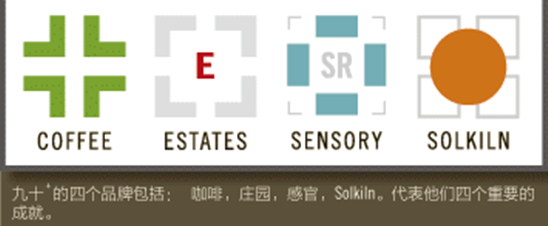
Ninety +'s four brands include: Coffee, Manor, Senses, Solkiln. They represent four important achievements.
Ethiopia, and its many different varieties of different tastes are no less than 10,000 varieties of grapes to produce 1 million different wines. All of the 90 + green beans come from Ethiopian originals, including Gesha from Panama Estate, which was also transplanted from Ethiopia. Processing is 90 +'s specialty. They separate these coffees one by one according to variety, microclimate and fresh harvest time, taste them one by one, and design processing methods for each taste to achieve a taste characteristic. Just like the design of a big brand, it takes a lot of effort to complete a craft that is close to art. Natural products go through a lot of refinement, improvement, and finally reach the most beautiful posture before presenting the content to everyone.
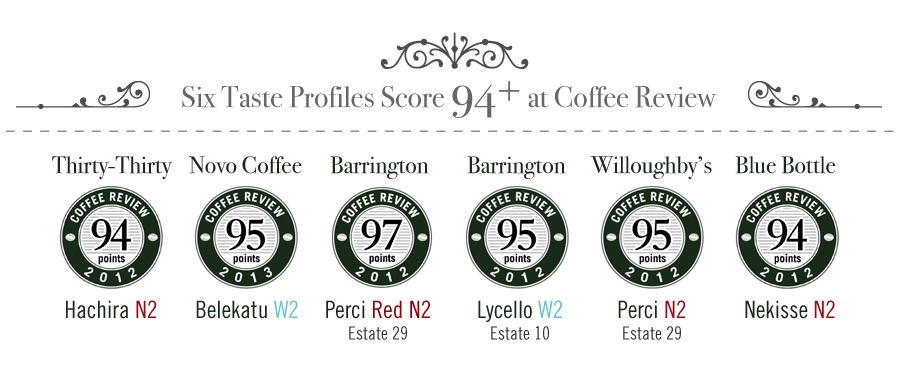
Ninety +
Ninety Plus, translated directly, is 90 +, or "90 + points." Non-industry friends may not understand that a coffee bean with a score of 90 or more means that it is close to perfect for coffee lovers. Whether it's a cup score or a Coffee review score, it's a hard-won honor.
2007 Aricha Selection 7 90's first coffee comes out 95 points in Coffee Review (Novo Coffee Roasters)
2009 Aricha Micro Selection 14 Wins SCAA Coffee of the Year World Third Prize
2009 Aricha Micro Selection 33 with 4-time Canadian champion Sammy Piccolo as runner-up coffee at the World Barista Competition
2012 Panama Manor's Roasted Summer debuts, Perci Red receives Coffee Review's highest ever score of 97 (Barrington Coffee Roasting Co.) In addition, 90 + Coffee has appeared many times in the World Barista Competition, and the contestants have won the first prize of each country and world class. Coffee Review scores 93, 94, 95, 96, and 97. Because of the numerous achievements accumulated over the years, they are not listed here.
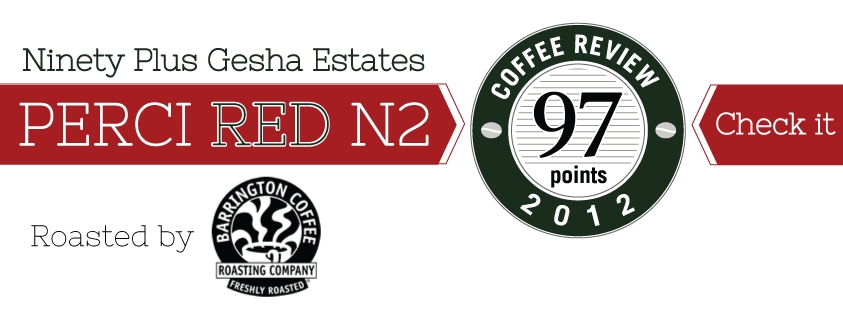
Ninety + Brand Founding:
Ninety Coffee was founded by our creative team, and our initial idea was to create a better manor coffee.
Our team: We are committed to delivering exceptional coffee to the global specialty coffee market because we personally control every step of the process, from cultivation to production, in pursuit of the ultimate coffee flavor experience.
As growers: Our early experience taught us that in order to achieve a continuous and meaningful change in coffee flavor, we need to devote ourselves to the entire process of coffee production, starting with plant management. So we take on the responsibility of plantation owners and enjoy daily contact with coffee trees, so that we know enough about coffee to come up with better ways to improve its flavor from the source.
As a producer: During the initial processing, we use different processing methods to develop different flavors of coffee. This forces us to engage in repetitive and sometimes uncomfortable experiments. We trust our intuition, accept failure, and expect success. It is this repeated experiment that makes our coffee unique. And besides, we have a habit of asking ourselves,"What's next?" whenever we experiment with a flavor.
Honor: Honor is not the most important thing for us. Of course, we appreciate the recognition of people from all walks of life, but for ourselves, there is nothing like introducing our unique coffee flavor spectrum to everyone. In the process, they will experience the complex and varied wonderful coffee flavor.
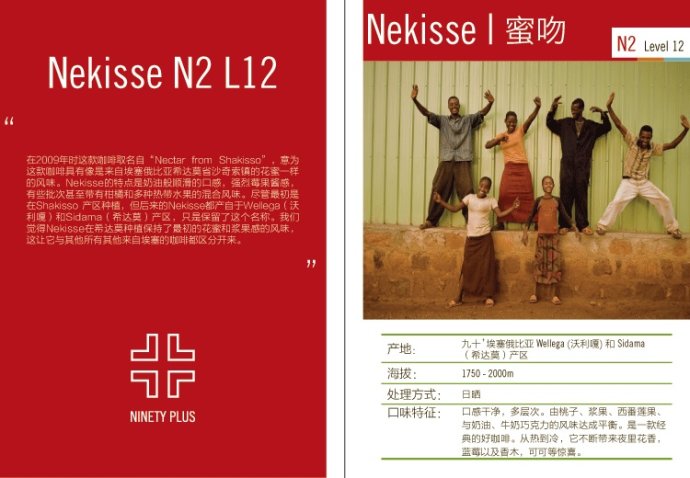
processing technology
W2,H2,N2, Red, Ruby, Solkiln are all 90's patented terms. They represent different processing technologies.
W2, H2, N2
Ninety + thinks coffee itself is a fruit, so it sets its own exclusive processing method as (W2),(H2),(N2) according to taste. These three flavors can also be simply understood as processing methods: W2=WASH washing; H2=HONEY honey processing;N2=NATURAL sun processing. They actually represent the degree to which fruit flavor affects taste during processing.
When you understand traditional coffee processing, you will find that the differences between these processing methods will gradually blur after a small amount of adjustment in practice. For example, a little washing can be added at different stages of the dense processing process to make it have a light and bright washed taste; the sun will be brighter after strict control of the degree of fermentation of the pulp. Therefore, solarization and densification may not be as expected. In order to give bakers the clearest taste cues, Ninety categorizes flavors as the main category:
· W2 : Low fruit tone; emphasis on brightness, acidity, and floral fragrance.
· H2: Moderate fruity tone; sweet, fruity (rather than fruity), and tea-like.
· N2: High fruity notes; emphasis on bold, sour, jam and dried fruit flavors.
Red
The so-called "red treatment" is a special treatment method carried out by the 90 team through its own patented drying technology. This treatment process will make the color of the coffee beans in the shell appear different degrees of red, from light red to ruby red. This treatment method will enhance the aromatic characteristics of the coffee itself again, and will reflect the strong sweet feeling with obvious fruit taste on the taste.
Ruby
The so-called "ruby" treatment is also a harder, more extreme way of treating red. To make red processing sweet and fruity to the extreme, if you are not careful, it will become a bad fermentation flavor. This method also requires a lot of manual screening. Each green bean must meet the "ruby" standard in order to be called a "ruby" bean. It has been eliminated many times and tried many times, leaving the last point to reach the standard of "ruby", so it is expensive.
Solkiln
The so-called Solkiln method is a special treatment method patented by Ninety Company. They dry fresh coffee in a house originally used to dry wood. In this house, special equipment is used to control the temperature and humidity required to maintain the stability of the internal environment. At the same time, it eliminates the influence of the local humid climate on coffee.
Level
"Level" is ninety + the number after the name label "L". For example, L12 is Level 12. Level is roughly proportional to the price, representing 90 + special green beans grading mode: according to quality, quantity, production cost, 90 based on the original excellent green beans, continue to grade as:
Level 7 (L7)
Harvested from a single production area. Rare varieties with delicate taste and special flavor are hand-selected and then processed by NinetyPlus unique method to reach the standard of over 90.
Level 12 (L12)
Harvested from a single production area. The website uses negative adjectives such as "cannot be identified indelibly" to indicate that this grade of beans must be a good taste that every coffee person will never forget.
Level 21 (L21), Level 39 (L39)
Most of these are varieties of Gesha grown on Panama estates. Ethiopian Nekisse Red, specially red-processed, also belongs to Level39 (L39).
Level 95 (L95), Level 195 (195)
They are beans grown in Panama's high-end microenvironment and processed through a long screening process using patented drying technology. To the highest standards of taste in design. Most of them will also be processed under the personal care of Joseph, the initiator. The annual output may only reach about ten to dozens of kilograms. It's a collector's item.
Important Notice :
前街咖啡 FrontStreet Coffee has moved to new addredd:
FrontStreet Coffee Address: 315,Donghua East Road,GuangZhou
Tel:020 38364473
- Prev

What kinds of coffee do you have? Talk about some common varieties and their iconic taste
In the class of the coffee roaster training class, the proportion of the theory course is about 40%. Most of the time is operated and practiced by the students themselves. The college uses the Korean Tae-hwan roaster for training, and the students analyze the results of the cup test. Compare, adjust and summarize one by one, when it comes to the varieties of coffee trees in the theory class, in fact, we can talk a lot, but only as a discrimination of coffee flavor.
- Next
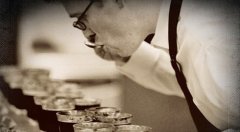
What kind of utensils will be better to brew fine coffee?
Manual brewing coffee / mechanical brewing coffee the main difference between "manual brewing coffee" and "mechanical brewing coffee" lies in the influence of human factors on this cup of coffee. Although there are six factors that affect coffee brewing, such as "grinding, ratio of water to powder", in fact, when using instruments such as "hand brewing, siphon, love pressure, smart cup, French press, mocha pot, semi-automatic Italian coffee machine", people are right.
Related
- Detailed explanation of Jadeite planting Land in Panamanian Jadeite Manor introduction to the grading system of Jadeite competitive bidding, Red bid, Green bid and Rose Summer
- Story of Coffee planting in Brenka region of Costa Rica Stonehenge Manor anaerobic heavy honey treatment of flavor mouth
- What's on the barrel of Blue Mountain Coffee beans?
- Can American coffee also pull flowers? How to use hot American style to pull out a good-looking pattern?
- Can you make a cold extract with coffee beans? What is the right proportion for cold-extracted coffee formula?
- Indonesian PWN Gold Mandrine Coffee Origin Features Flavor How to Chong? Mandolin coffee is American.
- A brief introduction to the flavor characteristics of Brazilian yellow bourbon coffee beans
- What is the effect of different water quality on the flavor of cold-extracted coffee? What kind of water is best for brewing coffee?
- Why do you think of Rose Summer whenever you mention Panamanian coffee?
- Introduction to the characteristics of authentic blue mountain coffee bean producing areas? What is the CIB Coffee Authority in Jamaica?

